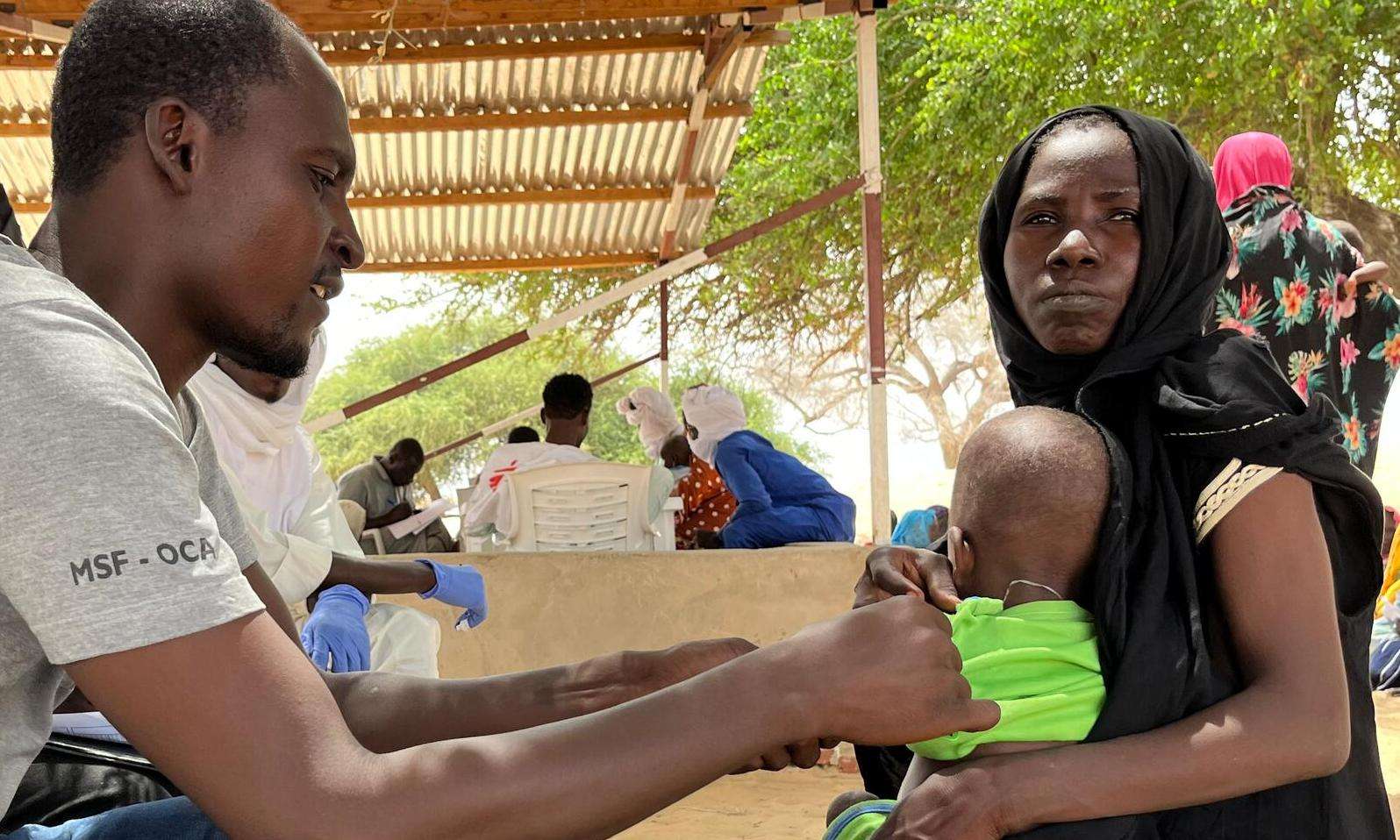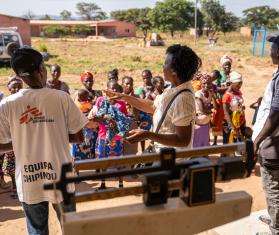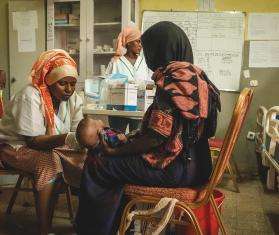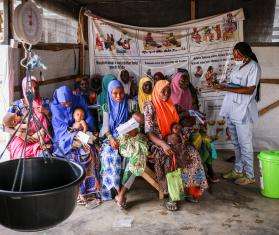Early in the morning, around 200 women gathered on mats spread across the courtyard of the N'doukouri health center in the Hadjer Lamis region of Chad. They were there to meet with medical staff from Doctors Without Borders/Médecins Sans Frontières (MSF) about the nutritional status of their children. Many were already enrolled in a nutrition program, while others were being screened for malnutrition for the first time.
“This is the second time my son has fallen ill with malnutrition,” said Mariam Abdoulkarim as she held him gently in her arms. The child had already been diagnosed with malnutrition and was treated by MSF teams a few months ago. But in recent days, he has become ill with diarrhea again and is struggling to breathe properly.
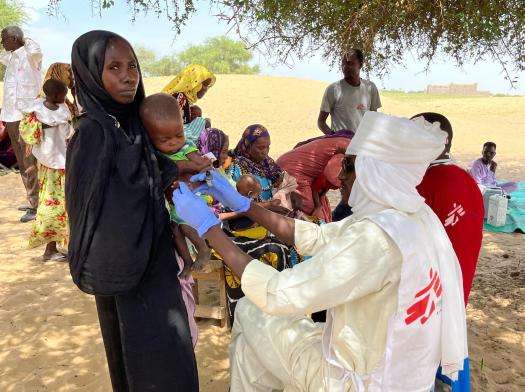
Mariam Abdoulkarim. Chad 2023 © Johnny Vianney Bissakonou/MSF
Some children have to be readmitted into the program within six weeks of being discharged. This is because the conditions at home that led to malnutrition in the first place are unlikely to have changed.
MSF launched an emergency malnutrition response in September 2021 that has since evolved into a long-term project addressing recurrent nutritional crises in the Hadjer Lamis region. MSF teams support an inpatient therapeutic feeding center (ITFC) in Massakory provincial hospital and manage ambulatory therapeutic feeding centers (ATFCs) for 12 health centers in the district.
MSF teams work to stop severe cases of malnutrition
Every week, MSF teams arrive at N'doukouri health center to manage the MSF ATFCs in collaboration with the Ministry of Public Health and Prevention to treat cases of malnutrition in children under 5 years old. Once there, the teams set up for the day under a shaded area where they screen for and treat malnutrition, malaria, and other common illnesses. The teams refer complicated cases of malnutrition to the provincial hospital in Massakory, where MSF runs an ITFC with a capacity of up to 60 beds during the lean season. MSF teams also distribute soap for personal hygiene and mosquito nets to prevent malaria for children receiving treatment.
In 2022, MSF treated almost 20,000 children for acute malnutrition across Massakory health district. This year, we have already treated more than 10,800 children with malnutrition.
“The persistence of acute malnutrition in this health district is caused by poverty, the effects of climate change, difficulties accessing health care, recurrent measles outbreaks, childhood diseases (malaria, diarrhea, and pneumonia) and the lack of access to good quality drinking water,” said Dr. Christian Mwemezi, an MSF medical team leader in Massakory. “To this day, food security and nutrition responses remain insufficient throughout the region of Hadjer Lamis.”
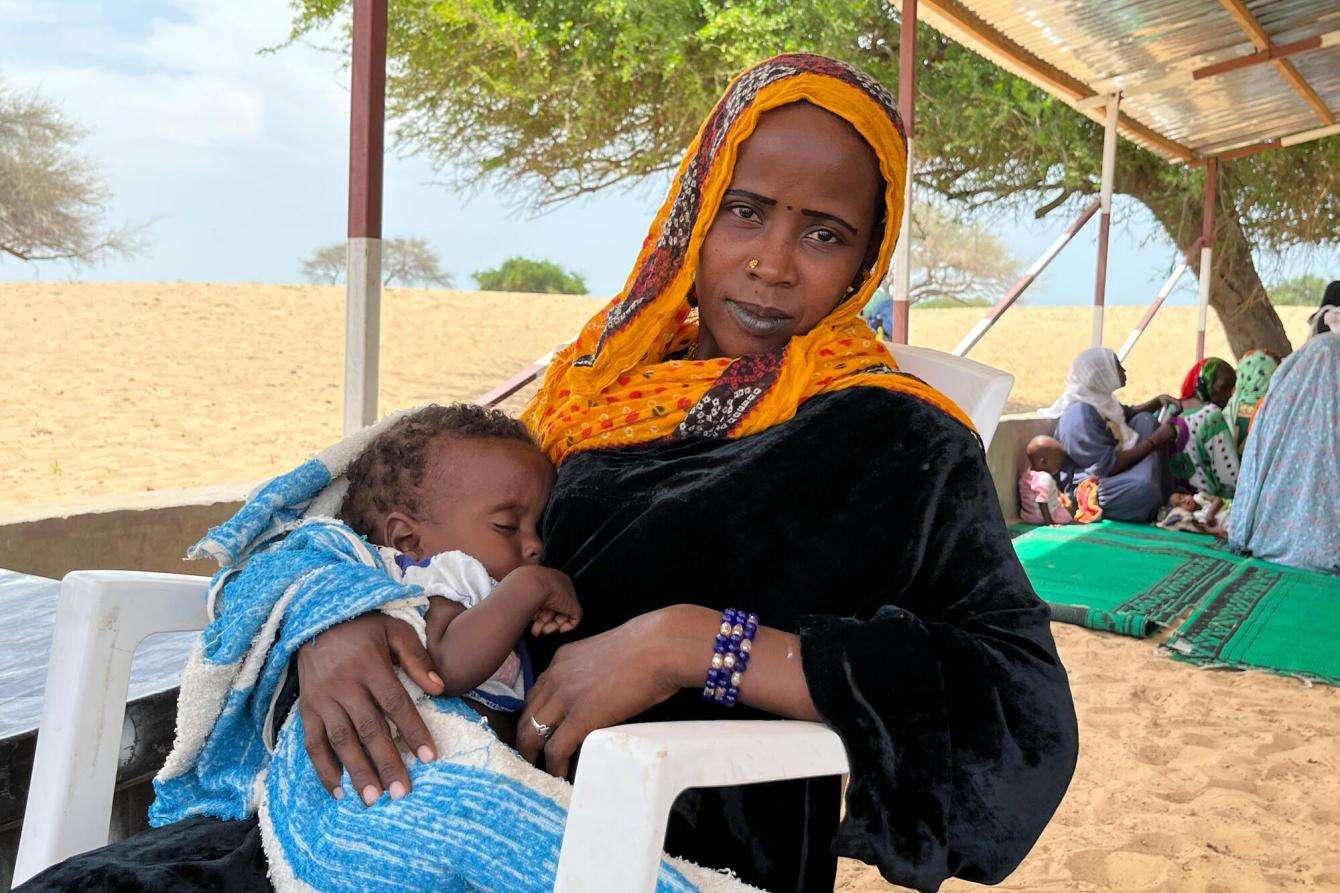
Facilitating access to medical care for people in hard-to-reach areas
People living in remote areas face additional challenges because health care is often inaccessible to them. To address this problem, MSF launched an initiative in May 2023 to improve access by partnering with people within the communities so they can treat common illnesses closer to home, and with MSF guidance and expertise. Community health workers, with technical and material support from MSF, manage activities, referring patients in critical condition to the nearest health center or hospital if necessary. The program in Massakory is unique in that it also covers care for malnutrition, which is one of the most common childhood illnesses along with malaria, respiratory infections, and acute watery diarrhea. Within the first two months of its launch, 516 children have been treated across Massakory.

In the village of Karkoure, located about 12 miles from Massakory town, community health workers—chosen by the community itself and supported by MSF—ensure people’s access to vital health care. “I have to sacrifice a whole day to get to the nearest health center, wait my turn for my baby to be seen, and then walk back home,” said Zara Oumar. For this mother, despite the immense challenges, it’s a great relief to have medical services available in her own village.
In a community hut that serves as an examination and treatment room, community health worker Béchir Abdouraman administers first aid using medicines provided by MSF. Twice a week, an MSF team travels to Karkoure and sets up consultation tables in front of this hut, and children from surrounding villages come for care.
For Younous Hissen Ahmat, chief of the village of Karkoure, this is a godsend for the people in his community. “We have a lot of problems with child malnutrition, malaria, and diarrhea in the community. It is the role of the chief to take care of his people, so if MSF comes to help us in this task, we can only be very grateful,” he said.
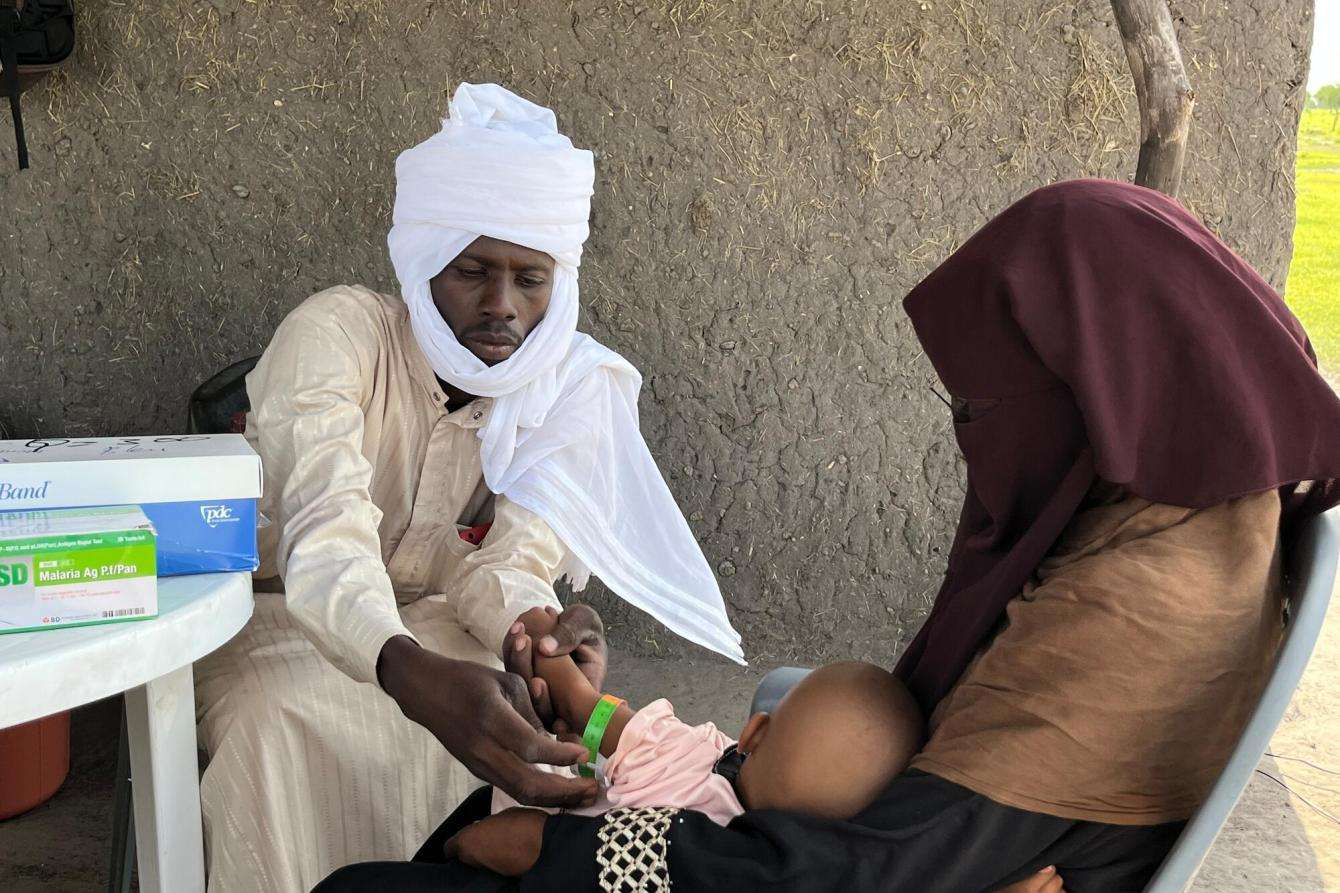
“There is a clear need for nutrition services in Massakory, but looking forward, we plan to strengthen our community partnership initiative, which we hope will address some of the challenges in accessing health care,” said Susanna Domeij, outgoing MSF project coordinator in Massakory.
"People need a lot more help than we are currently able to provide to respond to hunger and malnutrition among children in Massakory,” she said, “Other humanitarian organizations are urgently needed to support water and sanitation, and hygiene services to reduce diarrhea, respiratory infections and other preventable illnesses, as well as agricultural and income generating activities to prevent malnutrition in the first place."
